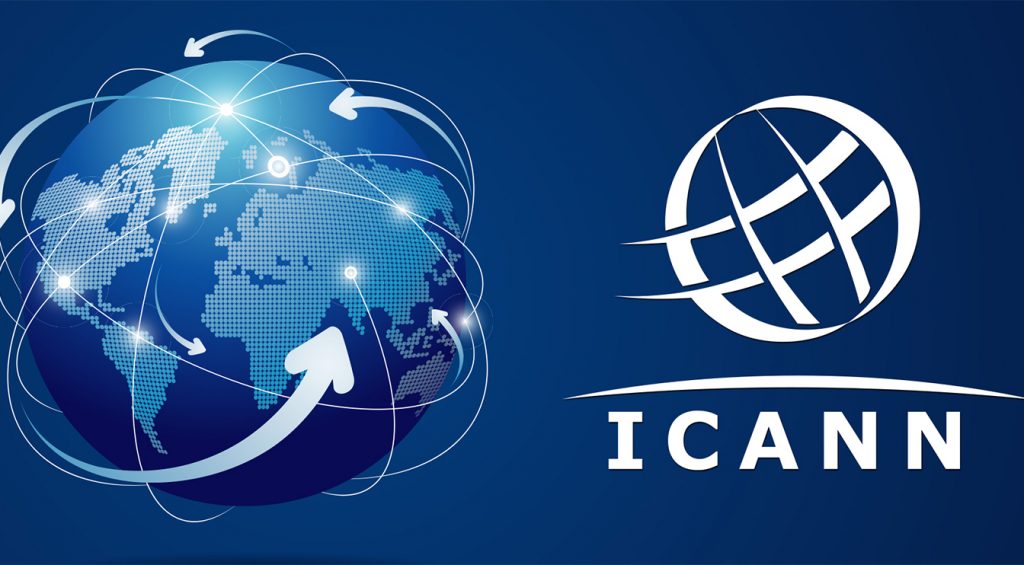Corwin: ICANN CEO Fadi Chehade passed secret resolutions, used NSA spy leaks as “false premise” to strip control from U.S.
Philip Corwin, Founding principal of Virtualaw LLC, and ICANN watchdog for the Internet Commerce Association, spoke out recently at the 49th ICANN meeting. ICANN (Internet Corporation for Assigned Names and Numbers) is in charge of assigning domain names and IP addresses on the Internet. Until now, the United States has had contractual oversight for the organization.
Singapore hosted the historic ICANN meeting, which discussed the future of internet governance after the United States ceded control. Singapore has a poor track record of internet freedom. Terence Lee writes in a paper for Surveillance and Society that internet regulation in Singapore “… hinges on an ideology of control with the sole aim of producing law-abiding, self-regulated and therefore, economically productive, docile and compliant citizens.”
During the meeting, Corwin expressed his concern that the United States ceding control of the internet was based on the “false premise” that NSA spy revelations required a massive change at ICANN. Corwin also came out against pervasive globalization.
“I am a globalization skeptic, which does not mean that I’m against globalization in the abstract. It means I have great concerns about the quest for globalization that’s going on right now. We are clearly in a time for ICANN of hope and change, that makes me very nervous because hope is not always rewarded and change is not always for the better. I’m also a firm believer in the maxim if it ain’t broke, don’t fix it.”
Corwin also revealed that ICANN CEO Fadi Chehade passed secret resolutions to further the goal of “an internet cooperation agenda.” Corwin stated,
“In the last period, particularly in the question which was out there since last summer of whether the NSA revelations undermined trust in ICANN and the Internet and required the type of response we’re seeing. Instead, we saw the establishment of top‐down presidential strategy panels. We saw ‐‐ and I hate to say this ‐‐ a new low point in ICANN with the secret Board resolution last September that authorized the CEO to take many of the actions that have been taken…”
The resolution, issued in September 2013, was published a month after the October 2013 ICANN meeting that pushed for the globalization of ICANN. The October meeting called on members to sign the “Montevideo Statement on the Future of Internet Cooperation.” Corwin notes that “While the Montevideo Statement was signed by ten entities, the actual work of coordinating its issuance was performed by CEO Chehade pursuant to a secret resolution passed by the ICANN Board on September 28th.”
Corwin notes that “No consultation effort was engaged in with ICANN’s stakeholders and constituencies before these decisions were made.” The resolution states,
Whereas, the existing, global, open, multi-stakeholder Internet governance system is under increasing pressure to evolve and adapt to global concerns.
…
Whereas these increasing pressures cannot be addressed by ICANN alone, but only by a group of similarly concerned organizations and entities acting in concert, ICANN should participate in an effort to form an Internet cooperation agenda (“Coalition”).
Resolved (2013-09-28-C1), the ICANN Board authorizes its CEO to allocate necessary and sufficient time and resources of ICANN and work with other key organizations and leaders to establish a coalition towards the formation of a movement or initiative. The financial resources for building the coalition must be allocated from the already established Strategic Plan funds.
ICANN’s goal of an open and transparent Internet doesn’t seem to coincide with the organization’s recent activities. The move to cede United States control over the Internet is concerning for multiple reasons. Now that ownership is being fought for among the worlds repressive superpowers, freedom of speech on the Net is in danger.
 With ICANN now open to the world, a whole host of anxious governments and organizations are grabbing for the power that is the Internet. The European Union, pushing for a “Web 3.0” that will facilitate the Internet of Things, is one potential player. “The European Commission’s position on jurisdiction and choice of law could lead to imposition of the European Union’s approach on data protection, cybersecurity, and other matters on entities outside its direct jurisdiction — including U.S. companies,” writes Corwin.
With ICANN now open to the world, a whole host of anxious governments and organizations are grabbing for the power that is the Internet. The European Union, pushing for a “Web 3.0” that will facilitate the Internet of Things, is one potential player. “The European Commission’s position on jurisdiction and choice of law could lead to imposition of the European Union’s approach on data protection, cybersecurity, and other matters on entities outside its direct jurisdiction — including U.S. companies,” writes Corwin.
As former Bush administration State Department advisor Christian Whiton stated, ICANN may end up as part of the United Nations.
Similarly shady activity is taking place with the Trans-Pacific Partnership, which is seeking to impose corporate controlled Internet regulation on its members. Senator Ron Wyden told Congress, “…the majority of Congress is being kept in the dark as to the substance of the TPP negotiations, while representatives of U.S. corporations – like Halliburton, Chevron, PHRMA, Comcast, and the Motion Picture Association of America – are being consulted and made privy to details of the agreement.”
Daniel Taylor is an independent researcher, activist, and webmaster of oldthinkernews.com. You can find out more about him and his site HERE


Wall Street Journal reporting this story yesterday boldly made the UN connection:
An Internet Giveaway to the U.N. If the U.S. abdicates internet stewardship, the United Nations might take control.
WSJ Aug. 28, 2016, By L. Gordon Crovitz
When the Obama administration announced its plan to give up U.S. protection of the internet, it promised the United Nations would never take control. But because of the administration’s naiveté or arrogance, U.N. control is the likely result if the U.S. gives up internet stewardship as planned at midnight on Sept. 30.
The WSJ is one of Ruppert Murdoch’s many mouthpieces. However, this piece appears to prove that even a broken clock is right twice each day.
I’ve noticed WSJ is tasked with introducing major social engineering memes to the upper ‘managerial’ class (executives, lawyers, docs, etc.). If they swallow the message without choking or rebelling, then the meme can be gradually introduced to the plebs. Lots of gems in there but it takes time to pluck ’em out. Always gotta sort the wheat from the chaff even in alt media…now more ever as the awakened are being targeted for ÷ & conquer in a Big way.
IoT is to connect all layers of industry into a cohesive closed system based on digitized value of the world’s assets and the planning of each form of need. I don’t believe that those creating this total control of life system understand what they are creating outside their frame of understanding. Mining, Agriculture, Chemicals…consumer demand/use, activity…all forms of data minining, data warehousing and processing methods (APIs) are used for blockchain protocol virtual ledger accounts for every individual on earth. Documents are available from all levels of government entities and global corporations as well as dozens of magazines, universities and so forth. The sending and collection of information is fairly well identified. How it is uesed is where planning and control come in. Many books have been written but none are clear about what I used to call “commit” points and object oriented cardinality or hierachy. What organization(s) get’s the last say is quite nebulous, fuzzy or not identified.
Unfortunately the devil is not in the details on this one. Mankind is in an epic battle against total enslavement and ICANN is just the latest tool NWO slavemasters have co-opted. While you still have the ability to speak out, we suggest you do so in a meaningful way. Free speech only matters if you have something to say.
Start you own subnets. Grow your own food.